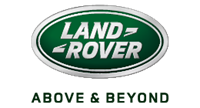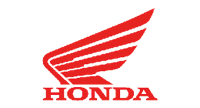Tyres
Our Lloyd Tyre Centres are located in some of the country's top locations, including World Heritage sites and the Lake District National Park, as well as Blackpool, Carlisle, Cockermouth, Colne, Kelso, Newcastle, Ripon and the South Lakes.
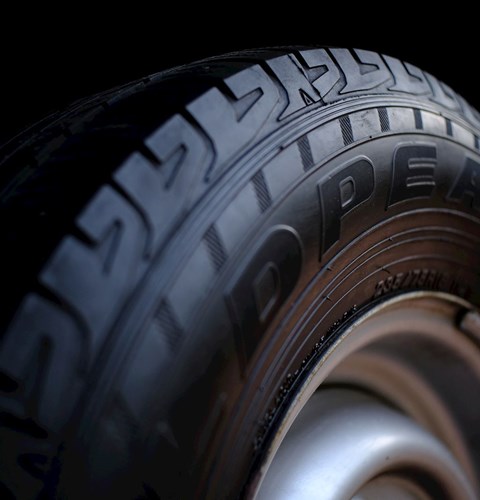
Tyre Tread Depth Information
Worn or incorrectly inflated tyres pose a serious risk, not only to drivers and their passengers but to other road users and pedestrians too. Both issues affect the way your tyre is able to grip the road, and the tyre tread expels water in wet driving conditions.
Tread is the rubber on the tyre that touches the road. New tyres have an average tread depth of 8 to 9mm.
As you drive, the tread will wear down. A tyre with a tread depth below 1.6mm lacks grip. Braking distance and vehicle control are impaired. These tyres are not safe for driving and must be replaced.
For safety reasons, we recommend a minimum tread depth of 3mm for summer tyres. Winter tyres should have a tread depth of at least 4mm. They need to be thicker to handle wet, icy, and snowy conditions. Ensure your vehicle is equipped with the correct winter, summer, or all-season tyres.
*Assumes new tyre tread depth of 8mm.
More about tyre tread safety
Checking the tread depth of your tyres is very important. Research indicates the most tyres on the road are either under inflated or below the legal limit of 1.6mm tread depth.
It is recommended that you check your tyres every two weeks or before you make any long journeys. We are on hand to assist you with a tyre health check should you need us to, and we can advise the correct approved tyre for your car if a replacement is required.
Check the tyre tread regularly. Wear indicator bars, which are raised areas at the base of the tread, serve as a visual warning that the tyre is near to or at the minimum legal tread depth of 1.6mm.
It is recommended that tyres are replaced when 3mm of tread remains. The less tread there is, the greater the stopping distance in the wet, and the greater the risk of skidding.
Many manufacturers recommend that you change your tyres when they reach 78% worn (3mm). Anything below this and the braking and cornering of your vehicle will be affected. The risk of Aquaplaning is also increased when driving on wet roads. You can read more about Tyre Tread Depth further down the page.
Tyre pressure can have a serious effect on the way your tyres wear and your car handles.
Regular checks to help ensure tyre pressure is correct will maintain the life of your tyres for longer. Overinflated tyres can cause heavy wear in the centre of the tyre, whereas under-inflated tyres will wear the shoulders more.
Depending on the age and specification of your vehicle, you may also need to reinitialise your Tyre Pressure Warning system. If you require assistance with any of this, please do not hesitate to contact us.
It is important to check your tyre pressure regularly and to adjust it as needed.
- Low tyre pressure can cause your car to ride rough, increase your risk of a flat tyre, and reduce your gas mileage.
- High tyre pressure can make your car ride stiff, increase wear and tear on your tyres, and reduce your gas mileage.
The recommended tyre pressure for your car is usually found on a sticker inside the driver's door jamb or in the owner's manual.
Here are the steps on how to check your tyre pressure:
-
Park your car on a level surface.
- Remove the valve cap from the tyre.
- Insert the tyre pressure gauge into the valve stem.
- Read the pressure on the gauge.
- Compare the pressure to the recommended pressure for your car.
- If the pressure is low, add air to the tyre.
- If the pressure is high, let air out of the tyre.
- Replace the valve cap.
You will need to increase your tyre pressure when carrying heavy loads on a long journey, or towing a caravan or trailer. Remember to deflate your tyres back to the normal pressure once you have finished your journey to avoid any unnecessary wear.
Most importantly, checking for damage will ensure that your vehicle is safe for the road and will give you the best ride quality. Checking regularly for damage, foreign bodies, any unusual tyre wear and checking the tread depth. Take extra care to check the sidewalls of your tyres and ensure there are not cuts and bulges that could have been a result of pothole of kerb damage. Also, keep an eye out for cracks as this is a sign that your tyres are ageing.
If you would like to book in for a complimentary tyre safety check, please contact our Service department.
*Excluding online prices. ^Driving condition dependent.
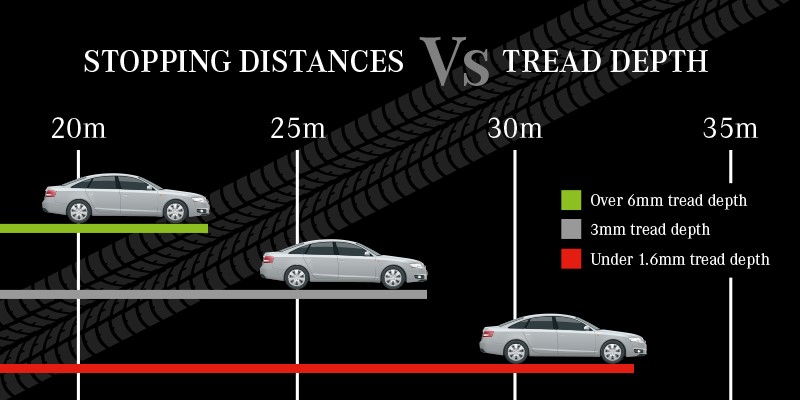
This diagram shows the stopping distance difference in wet conditions compared to the level of tread depth left on the tyre. If you have any questions regarding stopping distances, tread depths or tyre safety feel free to contact your local Lloyd retailer.
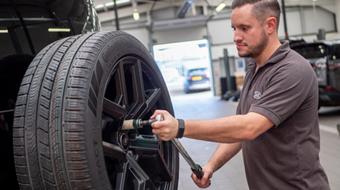
Tyre Safety
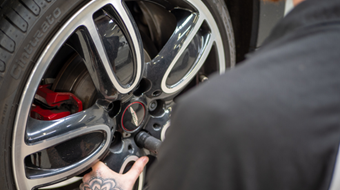
Tyre Price Match Promise
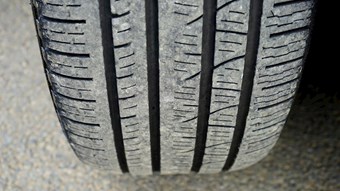
Wheel Alignment Check
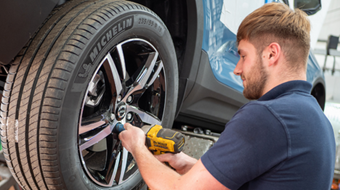
Complimentary Tyre Safety Check
Customer reviews









